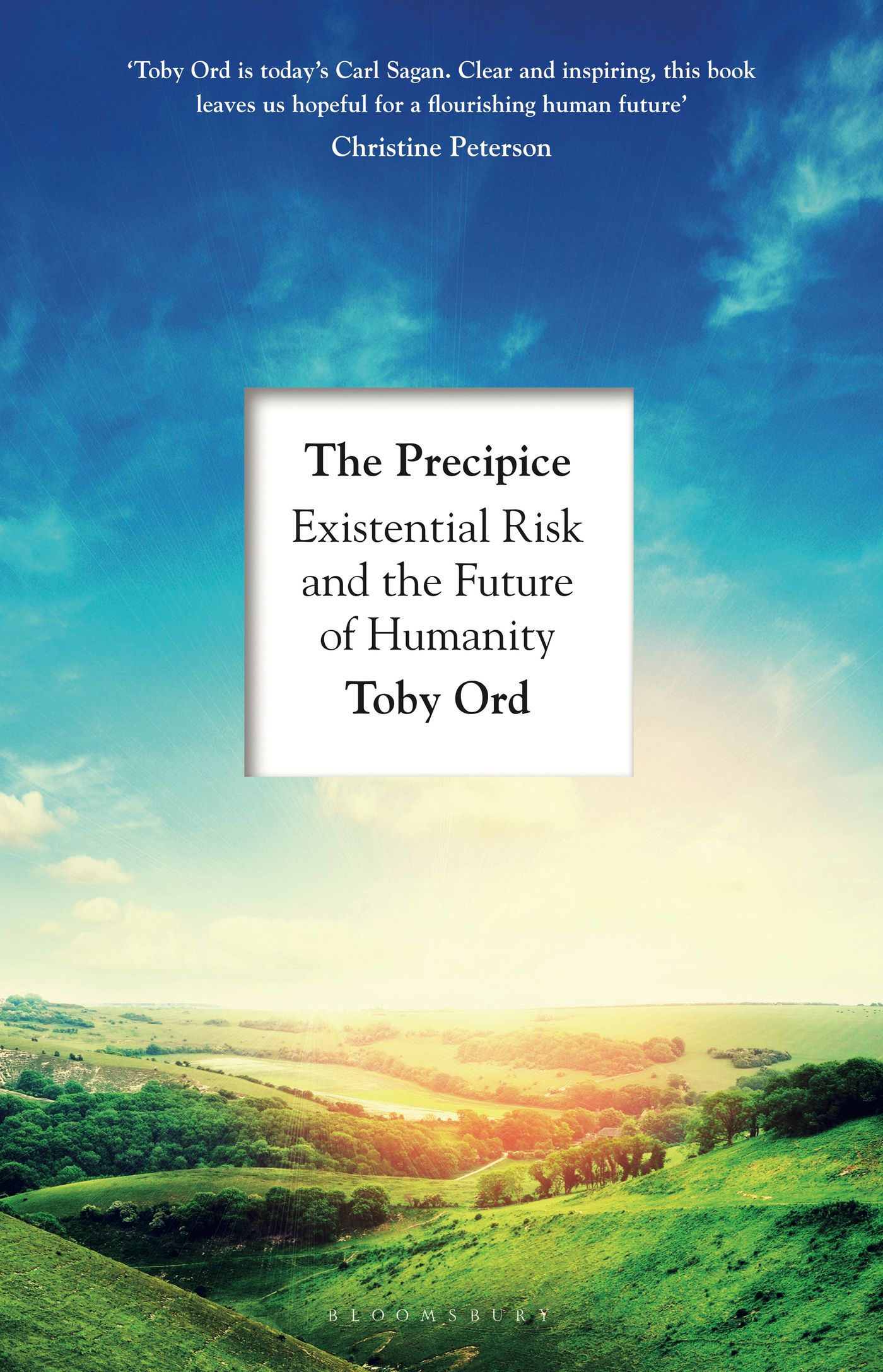The Precipice—Does Humanity Have a Future?

The Precipice: Existential Risk and the Future of Humanity , by philosopher and activist Toby Ord , is a masterful ( free book with subscription to newsletter ) reminder of the precipice on which humanity is sinking , if you move forward carelessly, it may become extinct, leading to irreparable and extremely harmful consequences. In fact, this book is only one of the representative works of some social movements originating from academies in the West at present, and it is unknown how influential these movements will be.
The logic of the argumentation of The Precipice is rigorous, the scientific evidence used is also very rich, and the consideration is meticulous and thoughtful. It is a rare high-level work. In addition to the author, we can learn from the book that there are actually many people who participated in the achievement of this book (a long list of thanks), including, for example, research assistants and various experts and scholars. It gives the impression that the movement behind this book has the support of a group of fellow travelers, so it was completed with the support of all, and it is a work representing a group.
With strict arguments (meaning high-level, but not necessarily correct), The Precipice mainly wants to tell people that the "Existential Risk" (Existential Risk) that mankind will face now and in the next century or two is definitely worthy of attention, and It is necessary to take active actions to reduce risks, otherwise what human beings have the opportunity to lose will be unimaginably great value and significance. These existential risks include "Natural Risk" and "Anthropogenic Risk"; natural risks such as asteroids hitting the earth and giant volcanic eruptions; "Nuclear Winter" (Nuclear Winter, that is, the effect of blocking sunlight caused by nuclear war dust) and "Unaligned Artificial Intelligence" (Unaligned Artificial Intelligence; meaning probably not in line with artificial intelligence that responds to human values) . The authors try to make a quantitative risk assessment, so that people can understand the situation more precisely.
According to the author's assessment, compared to natural risks, human-made risks are more deadly (and among them, he believes that the risks created by unadapted artificial intelligence are the most serious)-man-made technologies enable us to cause huge disasters, and even extinction Human beings, however, do not seem to have sufficient capacity and wisdom to manage such risks. So are the overall existential risks too great for us to avoid? No, but it is big enough that humans should not ignore it, especially considering how few resources are currently devoted to prevention and the consequences are too great. How big will the consequences of human extinction be? The author not only measures the consequences from the current loss of life, value and meaning, but also analyzes from the perspective of failing the efforts of our ancestors, and most importantly, from the perspective of the future—thousands of trillions of trillions . . . the possible future human generations, and the infinite possibility of development hidden within them. " Longtermism " is a related thought, arguing that human beings should pay more attention to the value of the long-term future, and make appropriate adjustments to current thinking and behavior, such as adjustments to reduce survival risks. You can refer to the explanation of the wonderful animation below:
Is the long-termist, who plans for the very distant future, persuasive to someone who may also struggle to cope with the problems of the present? In fact, long-termism has its critics, such as the very clever physicist, Sabine Hossenfelder, for reference:
In addition to long-termism, another related thought is "Effective Altruism" ( Effective Altruism ), which advocates doing good in an effective (such as high-quality research-validated) way to make the world effectively better; refer to the following video:
In fact, these trends of thought have developed into some social movements in the West. Although they are still not very influential, they still have a certain number of supporters and effects. How far they can go and how deep their influence can be tested remains to be seen, and tests will surely come one after another. For example, about a month ago, The Economist also published an article questioning them, entitled " The good delusion: has effective altruism broken bad? " One of the reasons for this article wasthe sensational collapse of the cryptocurrency exchange FTX , which involved improper business practices. The founder of the company, Bankman-Fried, was a strong supporter of the effective altruism movement; There was a change in the attitude of the enthusiastic participants of the effective altruistic movement. They questioned that the development of the movement had not been carried out according to the original idea, and they were suspected of going astray.
The above is a preliminary introduction to The Precipice and some related ideas and social movements. My own position is that I support the ideas in the general direction, but if it is about the details, whether it is theoretical or practical, it needs to be further understood and judged.
Added at the end of December: Sabine has a video youtu.be/nQVgt5eFMh4, commenting on Toby and related scholars.
Like my work? Don't forget to support and clap, let me know that you are with me on the road of creation. Keep this enthusiasm together!